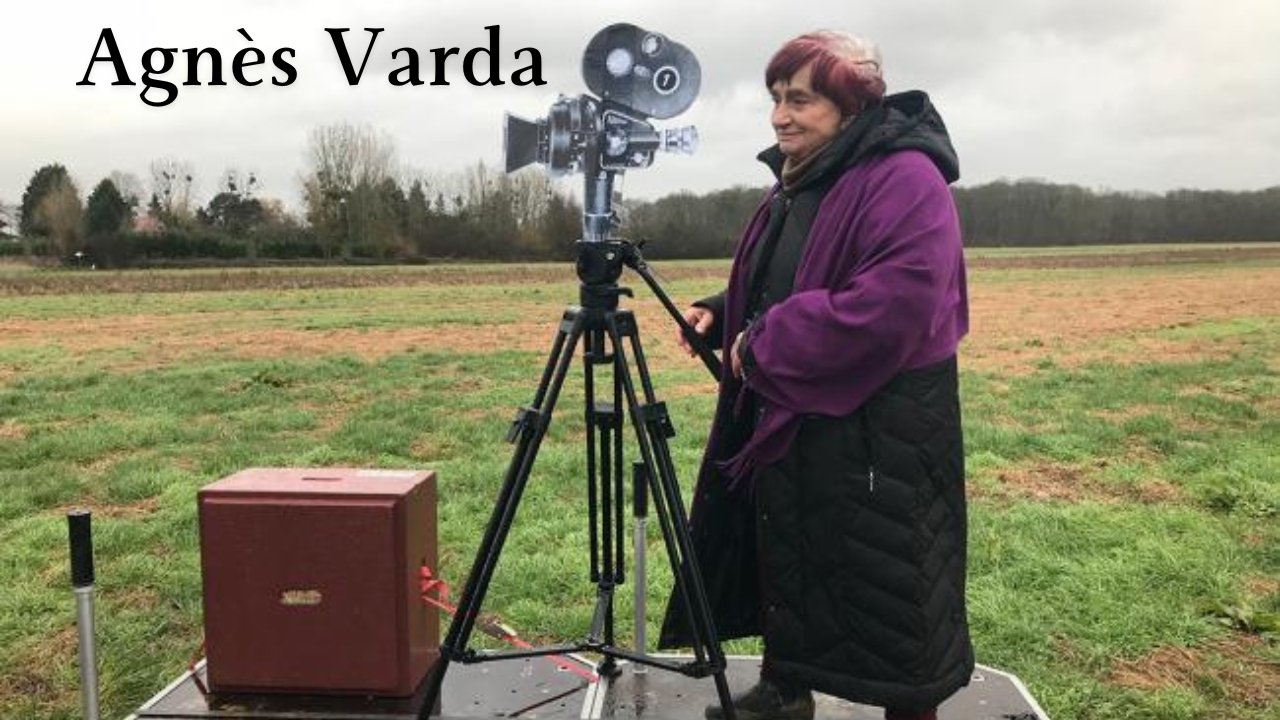Agnès Varda was not just a filmmaker; she was a revolutionary force in the world of cinema, a feminist pioneer who transformed the way we perceive films and their impact on society. Born on May 30, 1928, in Ixelles, Belgium, Varda’s journey into filmmaking was unconventional. She initially studied art history and photography in Paris and worked as a photographer before transitioning into film. Her debut feature, La Pointe Courte (1955), is often considered the precursor to the French New Wave movement, even before the term was officially coined.
Throughout her career, Varda crafted an oeuvre that spanned over six decades, characterized by a distinctive blend of documentary and fiction. Her films were deeply personal yet universally relatable, reflecting her unique perspective on life, love, and societal issues. She was not just a filmmaker but a storyteller who used the medium to explore and challenge the status quo, particularly concerning gender roles and feminist ideologies.
The Feminist Lens in Varda’s Films: An Analysis
Agnès Varda’s work is often celebrated for its feminist undertones, which were groundbreaking, especially in the male-dominated film industry of the 20th century. Her films frequently focused on the lives of women, portraying their struggles, desires, and complexities with an authenticity that was rare at the time.
Women as Complex Characters
One of the most striking aspects of Varda’s films is her portrayal of women as multifaceted beings. Unlike the often one-dimensional female characters in mainstream cinema, Varda’s women were complex, flawed, and real. For instance, in Cleo from 5 to 7 (1962), we follow a young singer named Cleo as she anxiously awaits the results of a medical test. The film delves deep into her fears, her interactions with others, and her evolving sense of self, offering a nuanced portrayal of a woman’s experience.
Challenging Gender Norms
Varda’s films often challenged traditional gender roles and norms. In One Sings, the Other Doesn’t (1977), she tells the story of two women, Pomme and Suzanne, and their friendship over several years. The film addresses issues such as reproductive rights, body autonomy, and the feminist movement in 1970s France. Through their stories, Varda critiques the societal expectations placed on women and champions their right to choose their paths.
Blurring the Lines Between Fiction and Reality
Varda’s feminist perspective is also evident in her documentary work. In The Gleaners and I (2000), she explores the concept of gleaning—collecting leftover crops from fields after the harvest—while examining broader themes of waste, sustainability, and the marginalized. By blending personal narration with interviews and observations, Varda highlights the resilience and resourcefulness of those often overlooked by society, many of whom are women.
Varda’s Influence on Modern Filmmaking and Feminism
Agnès Varda’s influence extends far beyond her filmography. Her innovative techniques and bold storytelling have left an indelible mark on modern filmmaking and feminist discourse.
Pioneering the French New Wave
While directors like Jean-Luc Godard and François Truffaut are often credited with pioneering the French New Wave, Varda’s La Pointe Courte predates their seminal works. Her use of non-linear narratives, natural lighting, and on-location shooting were revolutionary at the time and set the stage for the New Wave movement. Her impact is evident in the works of contemporary filmmakers who continue to draw inspiration from her fearless approach to storytelling.
Mentorship and Advocacy
Varda was also a mentor and advocate for young filmmakers, particularly women. She believed in the power of storytelling to bring about social change and was passionate about supporting new voices in the industry. Her involvement in initiatives like the “50/50 by 2020” campaign, which aims for gender parity in the film industry, highlights her commitment to fostering a more inclusive and equitable cinematic landscape.
Intersection of Art and Activism
Varda’s work seamlessly blended art and activism, making powerful statements on social issues through her films. Her commitment to feminism and social justice is evident in her later works, such as Faces Places (2017), where she collaborates with the artist JR to create murals that celebrate the lives of ordinary people. The film is a testament to her belief in the transformative power of art and its ability to create empathy and understanding.
Highlights of Her Most Iconic Works
Agnès Varda’s filmography is rich and diverse, with each film offering a unique perspective and insight into the human condition. Here are some of her most iconic works:
Cléo from 5 to 7 (1962)
This real-time drama follows a young singer, Cléo, over two hours as she awaits the results of a biopsy. The film is a poignant exploration of mortality, identity, and the female experience. Its innovative narrative structure and intimate portrayal of Cléo’s inner world make it a landmark in feminist cinema.
Vagabond (1985)
Vagabond tells the story of Mona, a young drifter whose body is found frozen in a ditch at the film’s beginning. Through a series of flashbacks and interviews with those who encountered her, Varda pieces together Mona’s story, presenting a raw and unflinching look at society’s treatment of those who live on its margins. The film’s stark realism and powerful performances make it one of Varda’s most acclaimed works.
The Gleaners and I (2000)
In this documentary, Varda examines the age-old tradition of gleaning, juxtaposing it with modern-day practices and societal issues. The film is a lyrical and introspective journey that touches on themes of waste, sustainability, and the human spirit. Varda’s personal narration and interactions with her subjects add a deeply human touch to the film.
Faces Places (2017)
In this heartwarming documentary, Varda teams up with the artist JR to travel through rural France, creating large-scale portraits of the people they meet along the way. The film is a celebration of human connection, art, and memory, and serves as a touching coda to Varda’s illustrious career.
The Legacy of Agnès Varda: How Her Vision Lives On
Agnès Varda’s legacy is one of innovation, compassion, and unwavering dedication to her craft and beliefs. Her influence can be seen in the works of contemporary filmmakers who continue to push boundaries and explore new ways of storytelling.
Inspiring Future Generations
Varda’s work continues to inspire new generations of filmmakers, particularly women, who see her as a trailblazer who broke down barriers and paved the way for greater representation and diversity in the industry. Her films are studied in film schools worldwide, and her techniques and themes are referenced and emulated by aspiring directors.
Celebrating Everyday Life
One of Varda’s most enduring contributions is her ability to find beauty and significance in everyday life. Her films often focus on ordinary people and the small moments that make up their lives, celebrating the human experience in all its complexity. This approach has influenced a wave of filmmakers who prioritize authenticity and relatability in their storytelling.
Championing Social Justice
Varda’s commitment to social justice and equality is a cornerstone of her legacy. Her films often address pressing social issues, from gender inequality to environmental sustainability, and her activism extended beyond the screen. She used her platform to advocate for change and to amplify the voices of those often silenced, leaving an indelible mark on both cinema and society.
You May Also Like: Who is Maxine Sneed? All You Need to Know
Conclusion:
Agnès Varda was more than a filmmaker; she was a visionary who used her art to challenge, inspire, and connect. Her contributions to cinema and feminism are immeasurable, and her impact will be felt for generations to come. As we celebrate her legacy, we also look to the future, inspired by her relentless pursuit of truth and beauty in storytelling.
Her films remind us of the power of cinema to reflect and shape our world, and her life serves as a testament to the importance of staying true to one’s vision and values. In honoring Agnès Varda, we celebrate not just her work but the spirit of creativity, courage, and compassion that she embodied.
And so, to all the film buffs and aspiring filmmakers out there, let Varda’s legacy be a beacon, guiding you to explore, innovate, and tell the stories that matter. For in doing so, you too can contribute to the rich tapestry of cinema and continue the work of this remarkable feminist icon.
Frequently Asked Questions
Who is Agnès Varda?
Agnès Varda was a renowned French filmmaker, photographer, and artist known for her pioneering work in the New Wave cinema movement. She is celebrated for her innovative storytelling and commitment to social justice, feminism, and the arts.
What are some of Agnès Varda’s most famous films?
Some of Agnès Varda’s most iconic films include Cléo from 5 to 7 (1962), Vagabond (1985), The Gleaners and I (2000), and Faces Places (2017). Each of these films showcases her unique narrative style and deep empathy for her subjects.
How did Agnès Varda contribute to feminism in cinema?
Agnès Varda significantly contributed to feminism in cinema by focusing on female experiences and challenging traditional gender roles. Her films often feature strong, complex female protagonists and address issues of gender inequality, making her a trailblazer in feminist cinema.
What is the significance of the “50/50 by 2020” campaign that Varda supported?
The “50/50 by 2020” campaign is an initiative aimed at achieving gender parity in the film industry by the year 2020. Agnès Varda’s support for this campaign highlights her advocacy for equal representation and opportunities for women in cinema, further cementing her legacy as a champion of social justice.
How does Agnès Varda’s legacy influence contemporary filmmakers?
Agnès Varda’s legacy influences contemporary filmmakers through her innovative techniques, focus on authentic storytelling, and dedication to social issues. Her work is studied and emulated in film schools worldwide, inspiring new generations of filmmakers to push boundaries and explore new narrative forms.











